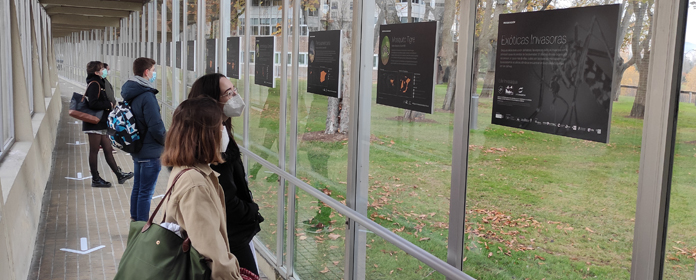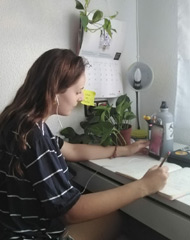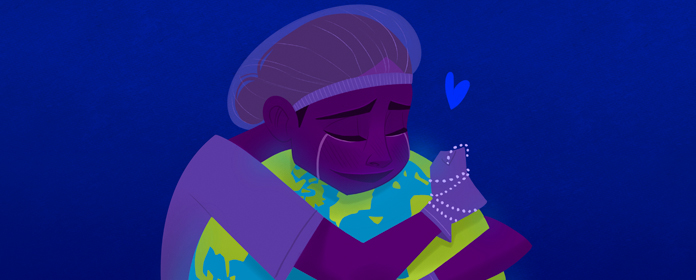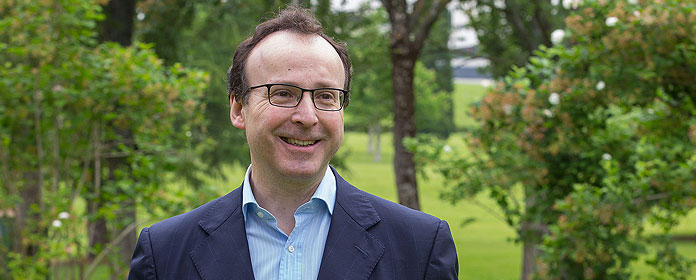"What is important in climate change is individual action in everyday life."
Professor Arturo Ariño gave a lecture lecture on climate change and highlighted Education, information, and individual action as keys to fight climate change.
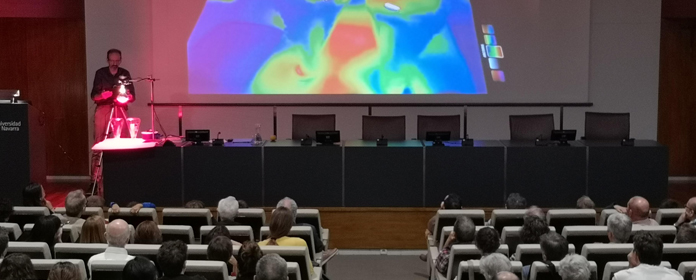
PHOTO: Courtesy
More than 300 people attended the lecture "The Science of Climate Change", a session organized by the Science Museum of the University of Navarra and given by Arturo Ariño, professor of the School of Sciences.
Dr. Ariño used different live scientific experiments to explain the different causes, consequences and trends of climate. During the lecture a historical review of temperature oscillations was made, allusion was made to agriculture or livestock as activities that play a leading role in these climatic variations, and even some critical reasons for climate control were pointed out, such as volcanic activity, for example. The session also indicated that there is scientific consensus on climate change, that the risk of imminent catastrophe is low - as far as the melting of Arctic ice is concerned - and that more data is needed to obtain better forecasts.
Ariño stressed the importance of the work of each citizen in daily life to provide greater resilience to climate change. "What is important in climate change is individual action in daily life". In this same line Ariño invited to reflect on the consequences that human actions have on the Planet, the importance of changing certain lifestyles, and to convince with arguments those citizens who are not concerned about this global problem.
"There are many daily choices we make in our activity, in what we eat or buy and the attitude we have in general toward life. Yours alone may not count, but that of 7 billion does," he added.
Another of the conclusions that Ariño stressed was the Education and citizen information as tools to stop the partial interests that exist in this "polarized" issue.
"The scientific and humanistic Education of people is fundamental. The most important thing to take care of the planet is to study, because this allows us to make more logical decisions and not to be deceived", concluded Ariño.
This lecture is part of the lecture series "The Museum Explains" organized by the Science Museum of the University of Navarra on a quarterly basis. Through these sessions, the Science Museum aims to contribute knowledge from the hand of experts to major scientific topics that are in the public opinion.

